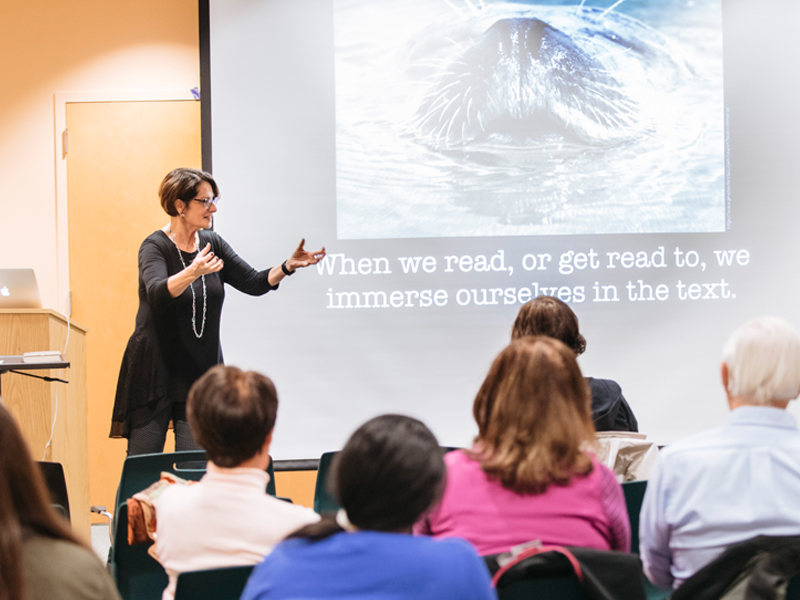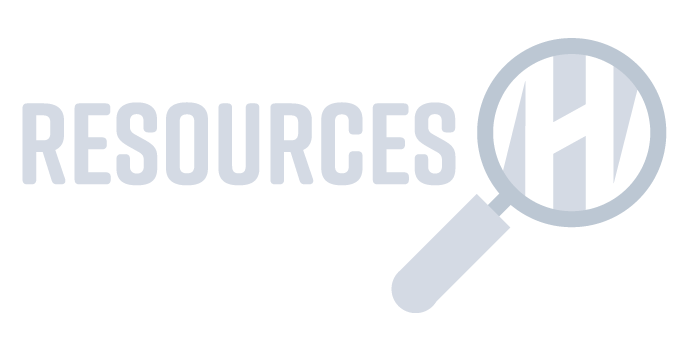Each year, the New Jersey Council for the Humanities subsidizes at least 200 public humanities programs for organizations throughout the state, providing opportunities for New Jersey communities to explore history, values, cultures, and beliefs, and to engage in discussions about key questions with the support of a scholarly perspective.
Host organizations are typically libraries, community and senior centers, historical societies, civic organizations, and schools. NJCH remains committed to these organizations and also hopes to expand our offerings to groups who are much less likely to come across dynamic humanities programs, such as prison populations, residents of homeless shelters, people with disabilities, and children and teens.
NJCH public scholars are our humanities ambassadors—those who want to share their knowledge broadly and see great value in the humanities as a means to encourage thoughtful exploration of ideas for all people around New Jersey.
PROGRAM CRITERIA AND SELECTION
NJCH is currently seeking proposals from scholars for new programs to be added to the catalogue for the 2020 calendar year. We are looking for proposals that encourage participation and discussion and seek to bring people of different perspectives and backgrounds together.
We seek proposals for public programs that provide humanities perspectives. Preference will be given to proposals that explore:
- Climate and environmental stewardship, particularly related to water
- Contemporary pop culture and music
- Health care and public health
- Women in civic life, 19th Amendment, and the Suffrage Movement
- First-person historical interpretations that reflect our nation’s diversity and tell untold stories
Programs need to be 60-75 minutes in length, with at-least twenty-five percent of the program devoted to significant audience interaction (i.e. not just lecture with a short Q&A). Proposals that address one of the topics above and/or can be offered in a language other than English will be given preference. Program proposals must have a strong foundation in the humanities and seek to explore topics with nuance and complexity. Programs do not need to be about New Jersey.
We sometimes receive proposals designed to “benefit humanity” through self-help and motivational speeches, financial counseling, or similar programs. While these are useful topics, they are not humanities programs. Read more about NJCH and the public humanities.
Scholars may submit more than one program proposal, however, we are only likely to select one proposal per scholar. Scholars may have up to three programs in the catalogue at any given time. Scholars whose proposals are chosen to advance to the final round will be required to audition either in-person or virtually.
WHAT IS A PUBLIC SCHOLAR?
Public scholars have a deep knowledge of a particular subject and broadly humanistic perspective and practice, for example:
- University faculty, graduate students, or researchers who have an advanced degree in a humanities field and are employed by an institution of higher learning.
- Public humanists who have an advanced degree in a humanities field, but are not affiliated with a college or university. They may work for organizations like museums, libraries, or cultural centers, or they may work independently.
- Humanities experts from non-traditional backgrounds may not possess or be working towards an advanced degree. They are still defined by their own communities as keepers of knowledge, cultural resources, and understanding.
Scholars best suited to this program are those who are interested in connecting with the public and are willing to adapt their programs to reach a wide variety of audiences. They consider how both the topic and format will make the program most accessible,understand that many people simply cannot sit through a long lecture, and are able to make adjustments as needed to best serve the people participating in the program.
Public scholars do not need to live or work in New Jersey; however, all programs take place in the state.
LIVING HISTORY AND HISTORICAL INTERPRETATION
Audiences can be particularly captivated by the immediacy of living history, and we value that sort of engagement and seek those scholars who can provide it. We are, however, mindful of the need to ensure that our living history programs go beyond the performance to provide analytical humanities content.
First-person historical interpreters must devote a significant portion of their performance to breaking out of character to discuss research methods, the process of character creation, and historical context about the historical figure or composite character that is being portrayed or must work with a partner who provides that contextual content. This portion of the performance will need to be articulated in the program application for it to merit serious consideration.
First-person historical interpretations do not need to portray famous historical figures and may be composite characters. Living history performances that tell untold histories and reflect our nation’s diversity in terms of race, class, gender, religious belief, sexual orientation, etc. will be more competitive.
IF I AM ACCEPTED AS A PUBLIC SCHOLAR, HOW DOES IT WORK?
Public scholars work with host organizations to schedule programs on a mutually agreed upon date and time. They also work with NJCH staff to keep the catalogue up to date, support outreach efforts, and troubleshoot problems. Scholars must respond to emails in a timely fashion.
All public scholars must be willing to travel statewide to participate in the Public Scholars Project.
Each program selected will be included in the catalogue for a 3-year term, renewable once.
Public scholars receive an honorarium of $250 plus a flat $75 travel stipend for each program presented.
READY TO APPLY?
Public scholar applications are due by July 15, 2019. NJCH will respond to all applicants by September 9, 2019.
If you have an idea that still needs refinement, we encourage you to submit the idea and we will review concepts in the development stage and may request additional information. We encourage you to review our current Catalogue before making your submission.
You will need to submit a separate application for each proposed program. Click here to apply.



